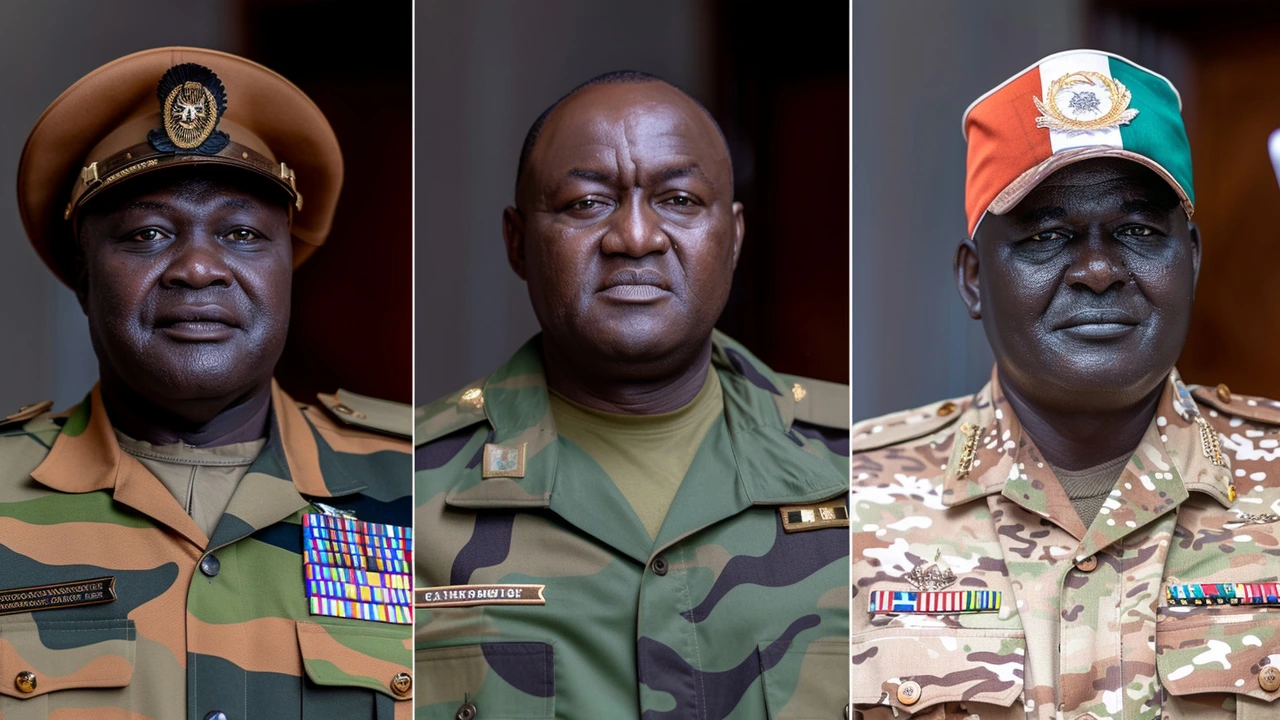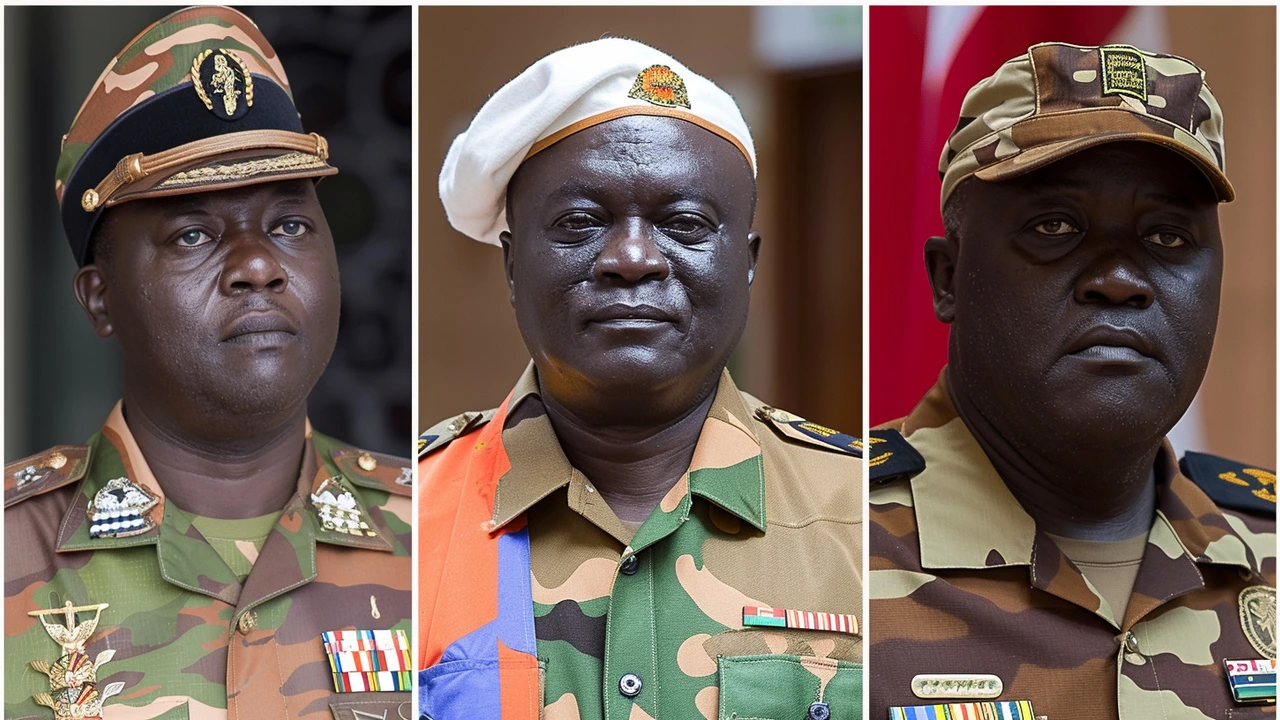Understanding Recent Coups in West Africa
The political landscape in West Africa has been significantly shaken by recent military coups in three nations: Mali, Niger, and Burkina Faso. While some initially attribute these coups to external geopolitical maneuvering, a closer examination reveals a more complex, deeply personal, and local set of motivations. These uprisings are reflections of internal power struggles, local grievances, and unchecked personal ambitions within these countries. This perspective challenges the dominant narrative that positions these events within a framework of foreign interference.
The Situation in Mali
Mali, a nation with a tumultuous history of coups, saw its government dramatically overthrown in August 2020. Colonel Assimi Goïta led this coup, successfully ousting then-President Ibrahim Boubacar Keïta. Goïta's move was not part of a grand geopolitical chess game but rather stemmed from a combination of personal ambition and local dissatisfaction. A significant portion of the Malian population had grown weary of Keïta's administration, which was riddled with corruption and inefficiency. Despite external narratives, Goïta's motivations were rooted in a desire for greater control and influence within the nation’s borders, aiming to tackle these internal issues head-on.
The grassroots dissatisfaction that fueled the coup was evident in widespread demonstrations against Keïta’s government, suggesting a deep-seated frustration among ordinary Malians. Corruption, economic stagnation, and a deteriorating security situation in regions plagued by insurgent groups contributed to widespread disillusionment. For Goïta, these issues provided both a pretext and a justification for his seizure of power. By portraying himself as a solution to Mali's myriad problems, Goïta garnered support from both the populace and segments of the military. However, the legitimacy of such a power grab remains contentious, as the underlying problems persist.
Niger's Turbulent Transition
Niger experienced a similar upheaval in July 2023 when General Abdourahamane Tchiani led a coup against President Mohamed Bazoum. This dramatic turn of events caught many by surprise, not least because of Niger's political stability in comparison to its neighbors. However, Tchiani's actions were less about regional destabilization and more about his own position and future. The general, facing potential marginalization under Bazoum's administration, acted out of a need to secure his influence and authority. His motivations, clearly personal, underscore the fragile nature of political leadership in Niger and the challenges of managing a military with significant autonomy.
Local grievances played a critical role in Niger's coup as well. Many Nigeriens felt that Bazoum’s government was not adequately addressing critical issues such as security, economic development, and social welfare. The threat from extremist groups in the Sahel region, combined with chronic underdevelopment and poverty, meant that significant portions of the population were dissatisfied with the status quo. Tchiani capitalized on these local issues, framing his takeover as a necessary action to stabilize and improve the country. Whether this narrative holds true in practice remains to be seen, as the challenges facing Niger are deeply entrenched and multifaceted.
Burkina Faso's Internal Struggles
In Burkina Faso, the coup led by Captain Ibrahim Traoré in January 2021 followed a similarly human pattern of personal and local motivations. Traoré's ousting of President Paul-Henri Damiba was driven by a mix of dissatisfaction with Damiba's handling of Burkina Faso's security crisis and Traoré’s personal ambition. The nation's struggle against militant groups has been particularly brutal, with devastating attacks on civilians and a general sense of insecurity permeating society. Damiba's perceived failure to effectively address these issues provided Traoré with a compelling reason to take action.
The coup in Burkina Faso highlights the delicate balance between civilian governance and military influence in West African states. While Damiba had initially come to power through a military-led transition, his inability to stabilize the country or address key issues left his leadership vulnerable. Traoré’s coup underscores the significant influence of the military in Burkina Faso, where soldiers often see themselves as protectors of the nation and are thus quick to intervene when they perceive a failure of civilian leadership. This interventionist ethos within the military is a critical factor driving these coups.

Local versus Geopolitical Influences
One of the key takeaways from these coups is the limited role of external geopolitical factors. While international narratives often frame African political crises as outcomes of foreign manipulation or regional power struggles, the reality is often more nuanced. In Mali, Niger, and Burkina Faso, personal ambitions, local grievances, and internal power struggles are the primary drivers of political upheaval. These motivations are deeply embedded in the social and political fabric of each country, reflecting longstanding issues that external actors might not fully comprehend or appreciate.
Addressing the root causes of these coups requires a shift in perspective. Instead of focusing exclusively on external influences, it is crucial to understand the local dynamics at play. For international observers and policymakers, this means engaging more deeply with the specific contexts of each country. Efforts to promote stability and democracy in the region must be grounded in a thorough understanding of local issues, from economic disparities and corruption to security challenges and governance deficits.
The Impact on Regional Stability
The recent coups in Mali, Niger, and Burkina Faso have significant implications for regional stability in West Africa. These nations are part of the Sahel region, which is already plagued by violence from extremist groups and armed militias. The instability resulting from these coups could exacerbate security challenges, making it more difficult for governments to coordinate effective responses to insurgent threats. Furthermore, coups disrupt civilian governance and development efforts, potentially leading to a cycle of instability that is hard to break.
For neighboring countries, the coups are both a warning and a concern. The potential for conflict spillover and increased regional instability is high, necessitating a coordinated response from regional organizations such as the African Union and the Economic Community of West African States (ECOWAS). These organizations play a critical role in mediating conflicts and supporting democratic transitions, but they must also adapt their approaches to address the deeply rooted local factors driving these coups.

A Path Forward
The path forward for Mali, Niger, and Burkina Faso involves addressing the underlying issues that have fueled recent coups. This includes tackling corruption, improving governance, and addressing security concerns in a comprehensive manner. For the international community, supporting these nations in their efforts to build more resilient and responsive institutions is essential. This support must be tailored to the specific needs of each country, with an emphasis on local solutions and community engagement.
Ultimately, the recent coups in West Africa remind us of the complexity of political dynamics in the region. While external factors cannot be entirely discounted, a deeper understanding of local grievances and personal motivations is critical to forming effective strategies for stability and development. By recognizing the human elements driving these events, we can better support the people of Mali, Niger, and Burkina Faso in their pursuit of a more stable and prosperous future.

Write a comment